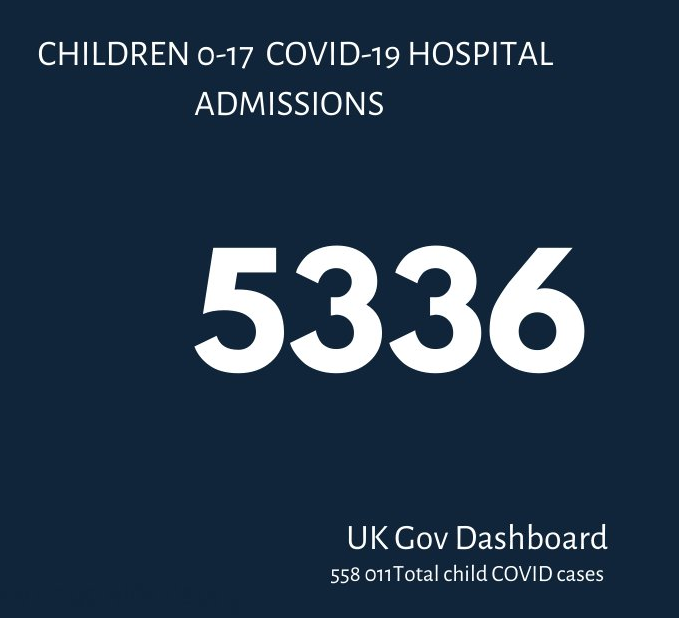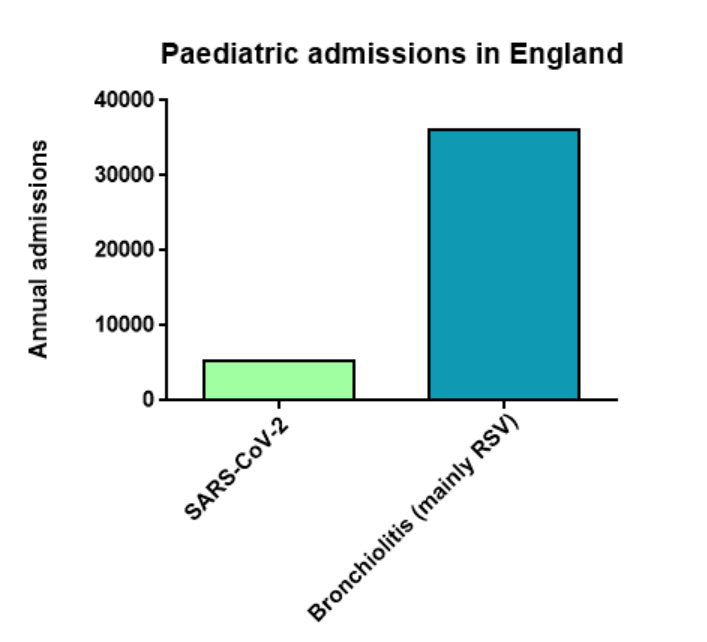
a lot of interest in my thread describing the impact of RSV this year on infants and children in the UK
and questions about whether children are more at risk from RSV or COVID-19 (new🧵) 1/n
and questions about whether children are more at risk from RSV or COVID-19 (new🧵) 1/n
RSV (respiratory syncytial virus) is an RNA virus that causes upper and lower respiratory tract infections in children
our recently published review in Vaccine pubmed.ncbi.nlm.nih.gov/33895016/ gives an in-depth introduction to the epidemiology and virology 2/n
our recently published review in Vaccine pubmed.ncbi.nlm.nih.gov/33895016/ gives an in-depth introduction to the epidemiology and virology 2/n
In the average year many thousands of children across the UK develop RSV infection: in 2016 there were 36,028 admissions for children <5 in England thorax.bmj.com/content/thorax… @PHardelid with around ~700 intensive care admissions 3/n
In the UK we are lucky to have a highly developed health system which means that if infants & children are very sick, they receive all the support they need whilst they recover from infection 4/n
For this reason deaths from pneumonia are thankfully very rare- an estimated 27 in England in 2018 unicef.org.uk/press-releases… 5/n
(this is not the case in developing countries- an estimated 118,000 infants and children die from this disease globally thelancet.com/journals/lance… @Dr_Ting_Shi @drharish_nair
deaths that could mainly be prevented if these countries had a health system equivalent to ours) 6/n
deaths that could mainly be prevented if these countries had a health system equivalent to ours) 6/n
And what about COVID-19? A recent series of studies (nicely summarised here nature.com/articles/d4158… )
showed an estimated 6,338 admissions for COVID-19 amongst children in the year March 2020-February 2021 7/n
showed an estimated 6,338 admissions for COVID-19 amongst children in the year March 2020-February 2021 7/n
1/5 the number for RSV - with 259 intensive care admissions - and again a very low death rate of 22 deaths, equating to 2 per million children nationally 8/n
So which is more worrying ? 9/n
on balance I think the prospect of a larger than usual RSV season is more concerning than ongoing COVID-19 infections for children < 12
a concern that is shared by @PHE and others gov.uk/government/new… 10/n
a concern that is shared by @PHE and others gov.uk/government/new… 10/n
Clearly we'd be better off without either disease! and measures implemented to limit the spread of one will work effectively for the other
as we showed in a paper published @ADC_BMJ
adc.bmj.com/content/106/9/… 11/n
as we showed in a paper published @ADC_BMJ
adc.bmj.com/content/106/9/… 11/n
As at many points throughout the pandemic, we need to balance carefully the benefits- and potential risks-of unmitigated social interactions in the context of highly transmissible viruses 12/n
Lack of social interaction causes considerable harm for children too bmj.com/content/372/bm… 13/n
However this is also a tremendous opportunity to learn lessons from both diseases, so we can take steps to reduce the burden from RSV AND COVID-19 in the future
END
END
• • •
Missing some Tweet in this thread? You can try to
force a refresh













